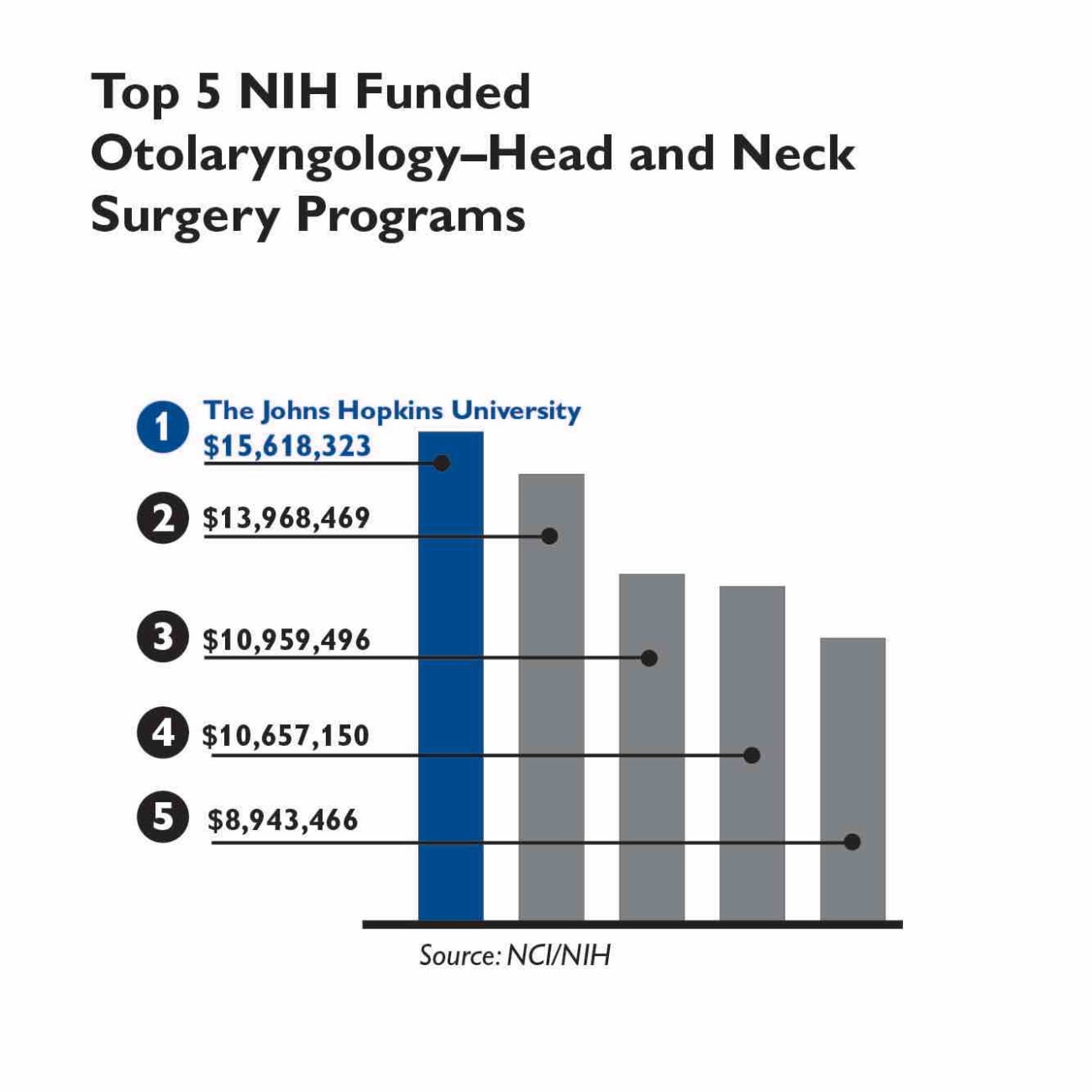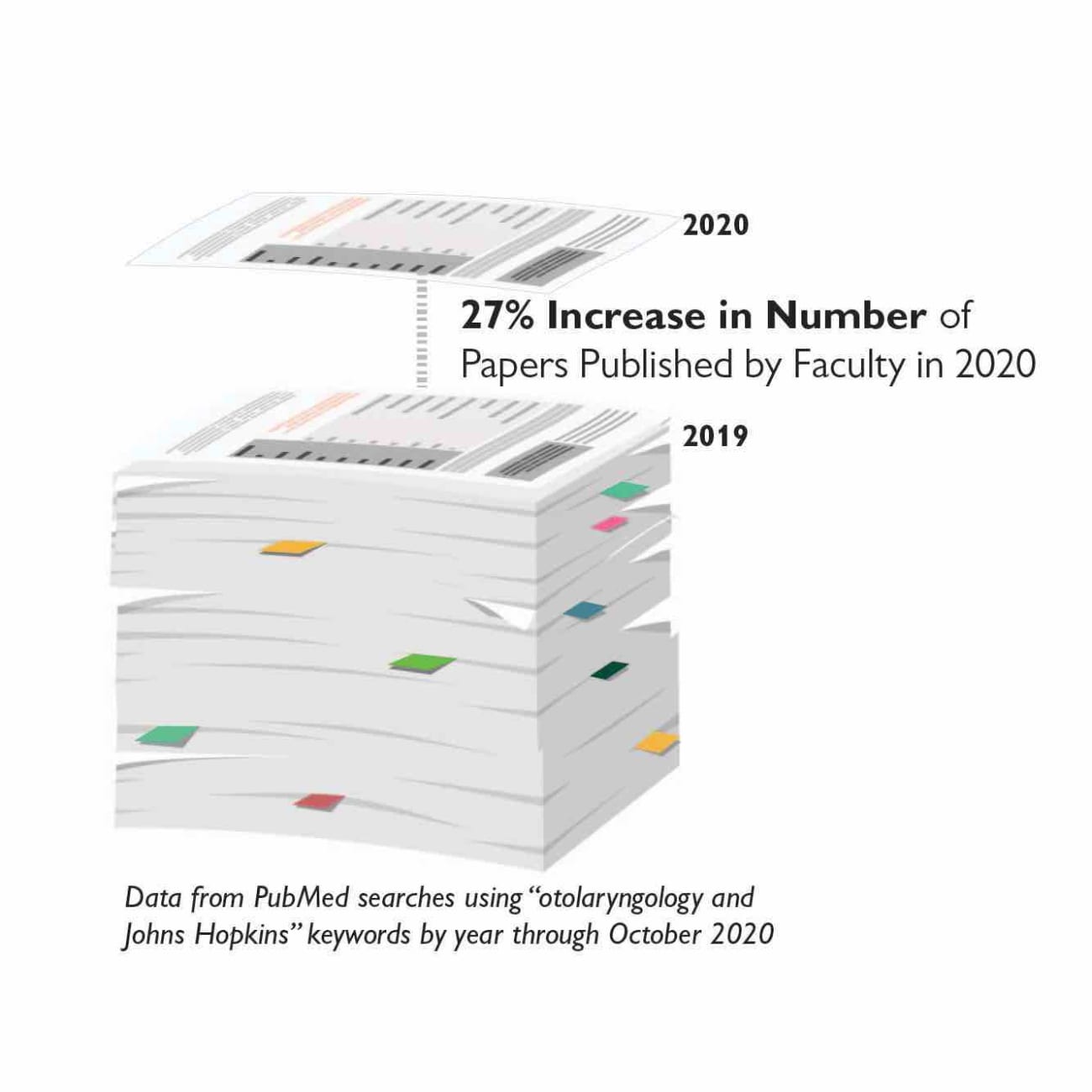Last year was an unprecedented one, including for research in the Johns Hopkins Department of Otolaryngology–Head and Neck Surgery. The department received the highest amount of NIH funding across all similar departments in the country in 2020 — totaling more than $15 million. Likewise, the department increased the number of papers published by faculty by 27% in 2020 compared with 2019.
“Our production of papers increased a bit, perhaps because we had more time to write,” says Paul Fuchs, the David M. Rubenstein Research Professor in the Johns Hopkins Department of Otolaryngology–Head and Neck Surgery. Hands-on research continued as well. “We implemented a shared calendar to communicate the density of people in the lab at all times, so people could coordinate better.”
Notable projects from 2020 that address the pandemic include one by Andrew Lane, director of the Division of Rhinology and Skull Base Surgery, who received $478,000 from NIH to understand how the immune response interplays with the SARS-CoV-2 infection in the olfactory epithelium. In August 2020, a summary of findings was published, adding to evidence that odor-sensing cells in the nose are the key entry points for SARS-CoV-2.
Additional research on COVID-19 led by Murray Ramanathan, director of Johns Hopkins Otolaryngology–Head and Neck Surgery in the National Capital Region, received $196,500 from NIH to study the effects of air pollution, tobacco smoke and e-cigarettes on patients with COVID-19. Ramanathan’s work aims to uncover if infections are worse for patients exposed to such environmental factors.
Another area under investigation is whether SARS-CoV-2 infections spread to the middle ear. Matthew Stewart, associate professor of otolaryngology–head and neck surgery, is examining cadaveric tissue of people who died from COVID-19 to see if viral particles are found in the middle and inner ear tissues, potentially making their way to the sensory epithelium. In July 2020, Stewart and fellow researchers published a letter confirming SARS-CoV-2 colonization of the middle ear and mastoid in two of three patients and recommended droplet precautions during ear surgery for patients with COVID-19.
To refer a patient or learn more, call 443-997-6467.



